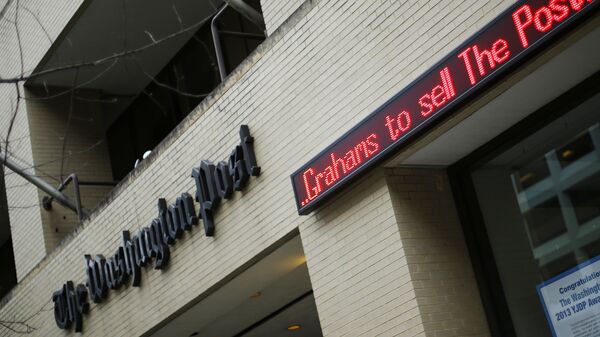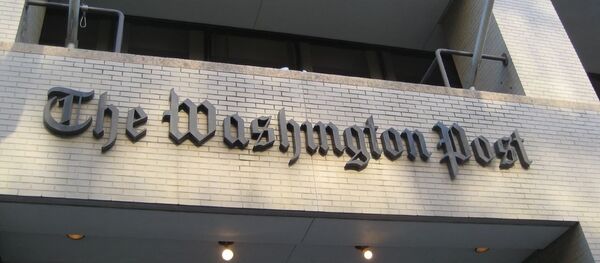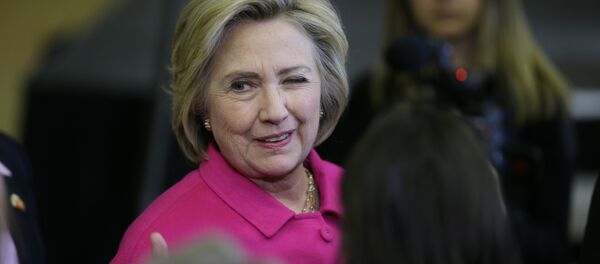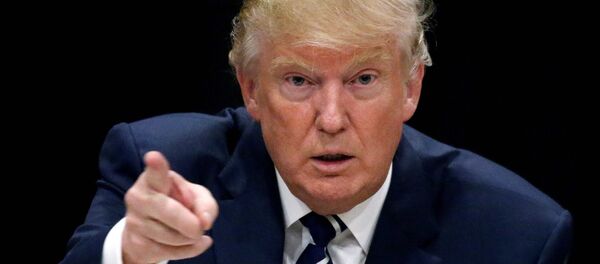The Washington Post piece, boldly titled 'Secret CIA Assessment says Russia was trying to help Trump win White House', claimed that the Russian hack was meant not just to "undermine confidence in the US electoral system," but to explicitly "help Donald Trump win the presidency." The article goes on to say that "intelligence agencies have identified individuals with connections to the Russian government who provided WikiLeaks with thousands of hacked emails" from the DNC and Clinton campaign chairman John Podesta.
The entire 1,600-word piece consists of attributions to unnamed "officials briefed on the matter" to back up its claims, citing these "officials" half-a-dozen times before asking for commentary from more anonymous "senior US officials" briefed on an intelligence presentation for US senators.
From all appearances, the CIA assessment itself wasn't leaked. Only claims about it from anonymous officials were. And we should see it. https://t.co/2V97wfQlDE
— Glenn Greenwald (@ggreenwald) 10 декабря 2016 г.
Greenwald also cited a similar second piece, this one in the New York Times, and also released Friday. That article, with the even more authoritative headline "Russian Hackers Acted to Aid Trump in Election, US Says," cited some more unnamed officials claiming with "high confidence" that US intelligence agencies have concluded that Russia "acted covertly in the latter stages of the presidential campaign to harm Hillary Clinton's chances and promote Donald J. Trump."
Significantly, the Washington Post admitted that "intelligence agencies do not have specific intelligence showing officials in the Kremlin 'directing' the identified individuals to pass the Democratic emails to WikiLeaks." But this admission, meant to protect the authors from potential criticism, is made ten paragraphs down, in an article boldly stating that the CIA assessment said that Russia was to blame for everything.
"What we have instead," Greenwald stressed, "are assertions, disseminated by anonymous people, completely unaccompanied by any evidence, let alone proof…Anonymous claims leaked to newspapers about what the CIA believes do not constitute proof, and certainly do not constitute reliable evidence that substitutes for actual evidence that can be reviewed."
The difference between reporting based on a) anonymous, evidence-free claims & b) leaked documents, should be too obvious to have to explain
— Glenn Greenwald (@ggreenwald) 10 декабря 2016 г.
Proceeding to rip into the US intelligence agency for its repeated and systematic lying, citing sources in credible US and UK newspapers, Greenwald noted that "what makes claims from anonymous sources so especially dubious is that their motives cannot be assessed."
Ultimately, the journalist wrote that "most important of all, the more serious the claim is – and accusing a nuclear-armed power of directly and deliberately interfering in the US election in order to help the winning candidate is about as serious as a claim can get – the more important it is to demand evidence before believing it. Wars have started over far less serious claims than this one."
Following the publication of Greenwald's article, social media users supporting the Democratic Party's claims of Russian involvement exploded with criticism of the piece, going so far as to accuse The Intercept of being pro-Russian propaganda. Known for his witticisms, the journalist casually responded.
Patriotic people don't suggest that the CIA is lying. This is what I've learned in the last 12 hours. https://t.co/wz7fYdiLDN
— Glenn Greenwald (@ggreenwald) 10 декабря 2016 г.
— Glenn Greenwald (@ggreenwald) 10 декабря 2016 г.
Greenwald's critical take on the Washington Post and New York Times pieces has since been echoed by the President-elect's transition team. A brief statement by the Trump team to the Washington Post wryly commented that the CIA's anonymous claims about Russian involvement in the election were coming from "the same people that said Saddam Hussein had weapons of mass destruction."
That statement quickly led to a Twitter war of its own, with people claiming to be critical of the CIA bizarrely jumping to its defense, with others patting Trump on the back for the comeback.
Wait. So Russia helped Trump win because the CIA said so? You mean the same CIA that said Saddam Hussein had weapons of mass destruction?
— Huxley Hill (@HuxleyHill) 10 декабря 2016 г.
— Kelly Taylor (@forcardassia) 10 декабря 2016 г.
— Abami Eda (@FELASTORY) 10 декабря 2016 г.
I have total confidence in this CIA assessment. Just like with the WMD in Iraq. https://t.co/FzUjUsAciM
— Stephen Pimentel (@StephenPiment) 10 декабря 2016 г.





